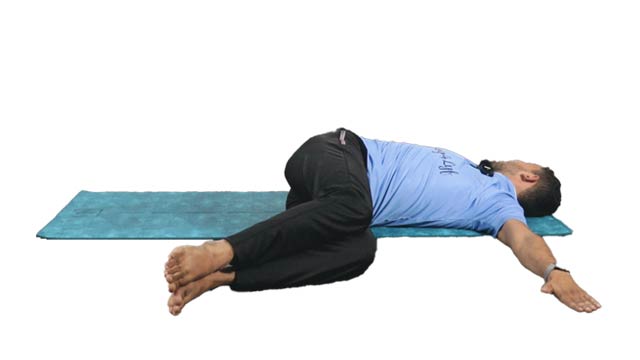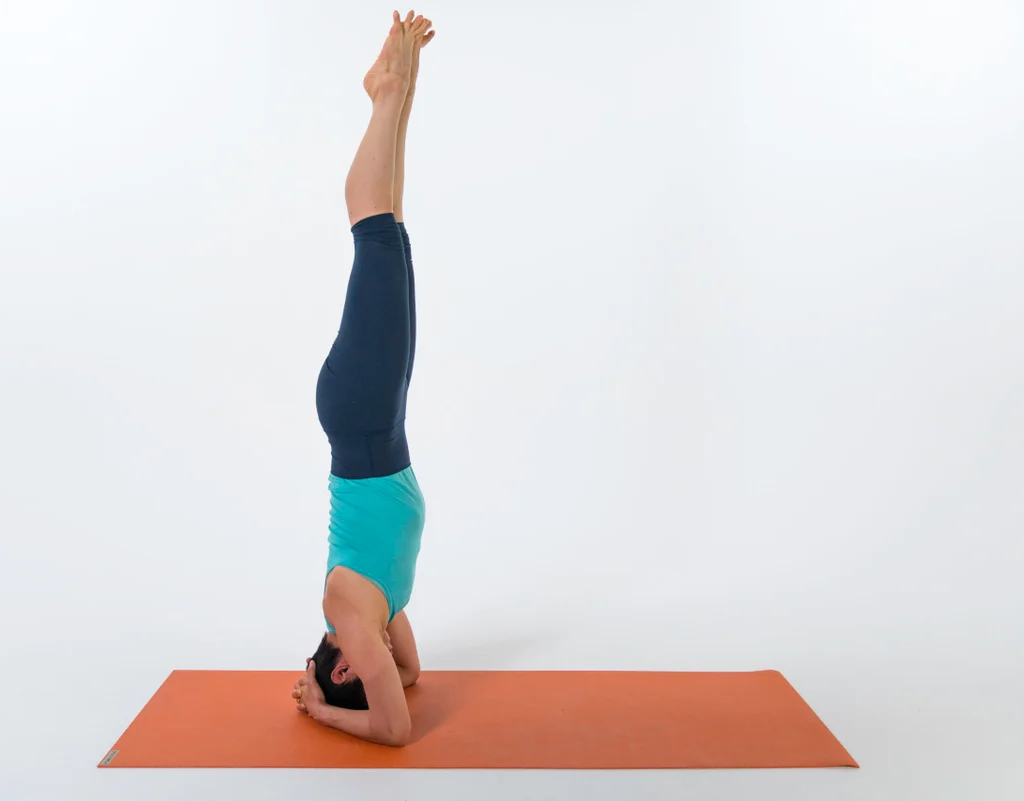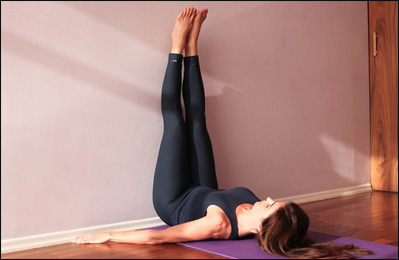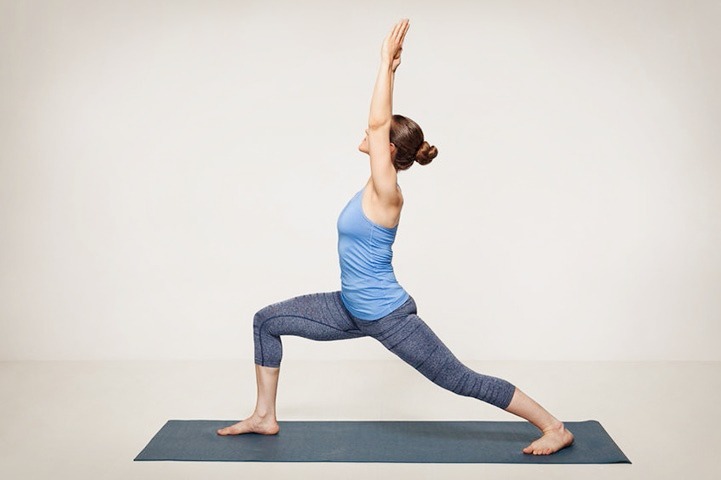What is Jathara Parivartanasana?
jathara = abdomen · parivartana = to completely revolve · asana = pose
We can refer to Jathara Parivartanasana, aka Belly Twist Pose, as a variation on Supta Matsyendrasana II (Supine Spinal Twist Pose II), but with the legs extended, giving a deeper twist to the hips, lower back, and abdomen.
It can be seen as a part of cooling down done once you have done intense backbends and deep standing hip openers. This helps relax the muscles of the spine.
Now that you know about what this asana is, let us move on to find out how you can do it.

Instructions:
- Lay comfortably on your back with your knees drawn into your chest.
- Great, it’s time to inhale and exhale several times to lengthen the connective tissues in your lower back.
- Set your arms out to your sides at shoulder level, palms turned up. Now, exhale drop both knees over to the left side of your body, twisting the spine and low back. Slide the knees as close to the left arm as possible. Look at the right fingertips.
- Ensure that you keep the shoulders flat on the floor. Just close your eyes and let yourself relax. Let gravity play its part and pull the knees down in such a way that you are not using any effort in this posture.
- Breathe…
- Hold for 5-6 breaths
- It’s time to relax. Just take a breath in and roll the hips back to the floor.
- Repeat on the other side.
You can also find the detailed instructions in following video made by Yog4Lyf Yoga Instructor, Mr Aarsh.
Benefits
Woohoo, you have just learned to perform the Jathara Parivartanasana perfectly. Now, let us give you some more motivation to do it by telling you its benefits.
Here are some of the reasons that will motivate you to roll your yoga mat and start performing Jathara Parivartanasana:
- It reduces the stiffness of the hips
- Aids in digestions
- Enhances blood circulation
- Helps you relax after a tiring day (we all need it, trust us!)
- Helps maintain the balance between your body and mind
- Brings elasticity and flexibility to the spine
- Helps release tension accumulated in the lower back
Encouraging enough? We know it, right!
Contraindication
- People with hips, spine, shoulders, neck, knees, ankles or rib cage injuries should avoid practicing it.
- People who have just recovered/ are recovering from abdominal surgery, hip replacement surgery, suffering from a herniated disc, etc., should take care and avoid this practice.
- Pregnant women or those post pregnancy should take it slow and practice under guidance, or avoid the same to stay away from complications.
- People with arthritis of the hips or back should perform it under the guidance of a yoga teacher.
- Though is a supine pose with the back supported, you must perform it with care. Here are some precautions to take care of:
Conclusion
Excited to do it? Just one last thing here, how long you should be performing it. You should practice it for such a time duration which you feel comfortable. Ideally, the recommended time is around 3 to 5 minutes. Take it slow with mindfulness.
Happy Yogaing!



